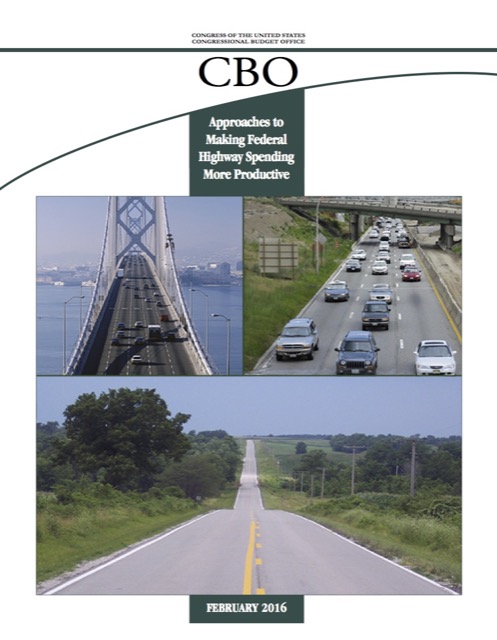The Congressional Budget Office has issued a report encouraging Congress to promote the use of mileage-based user fees to pay for roads. The current highway funding process is very inefficient, says the report. For example, urban roads are most heavily used and need the most maintenance, but most maintenance dollars are spent on rural roads.

The report offers three solutions to this problem: mileage-based user fees; allocating spending on the basis of benefits and costs; and linking spending to “appropriately chosen” performance measures. The report does not say so, but the problem with the second and third solutions is that assessments of benefits, costs, and performance measures by government agencies inevitably become political. Attempts to use either of these solutions at the state level have had, at best, mixed results and in fact mostly negative ones.








